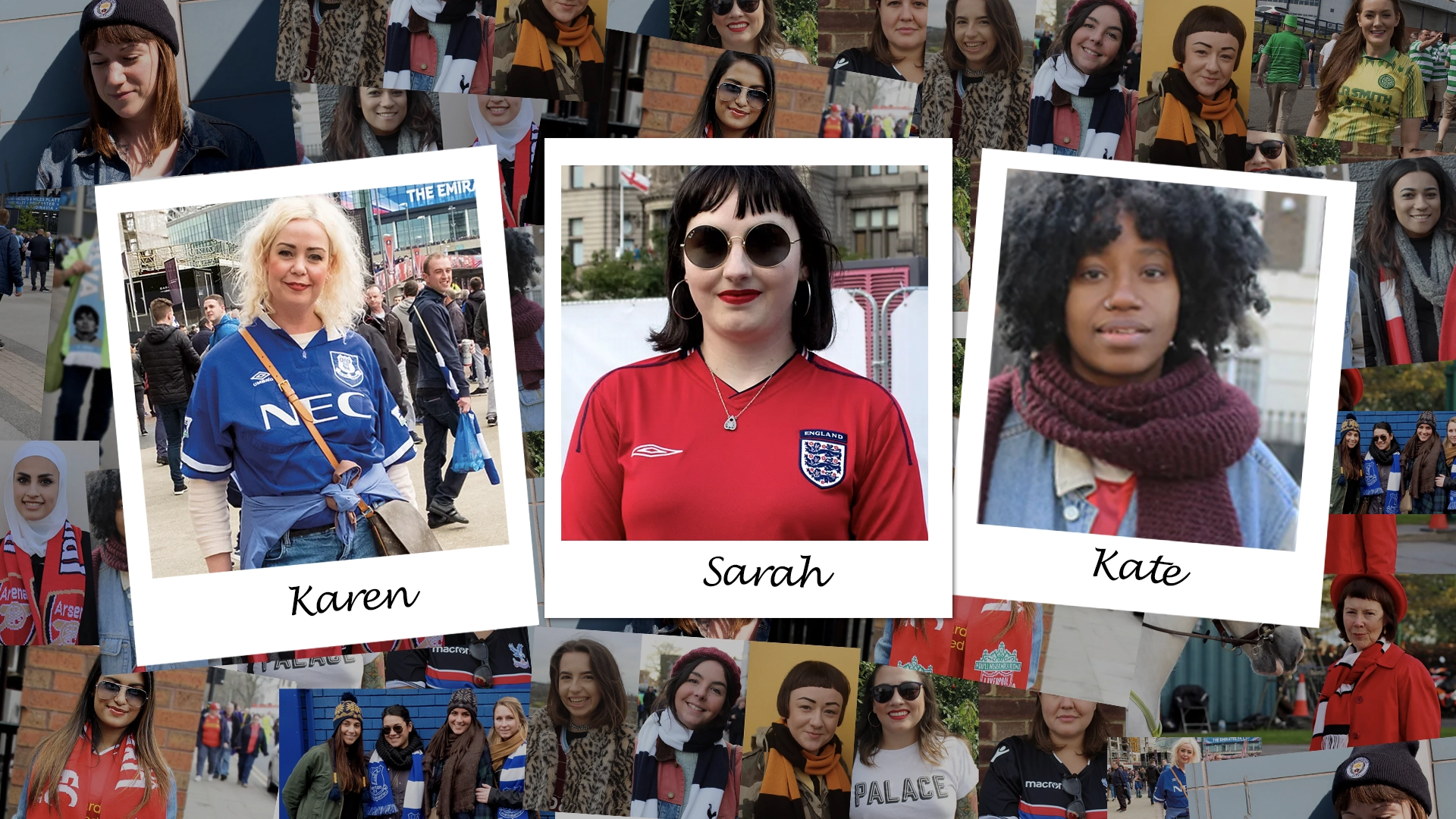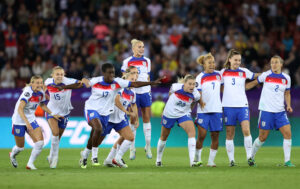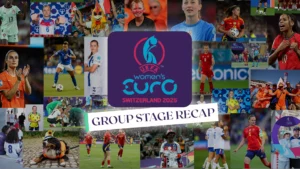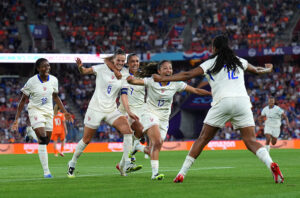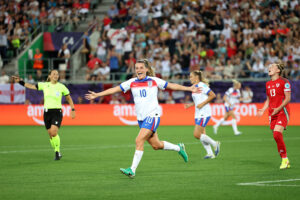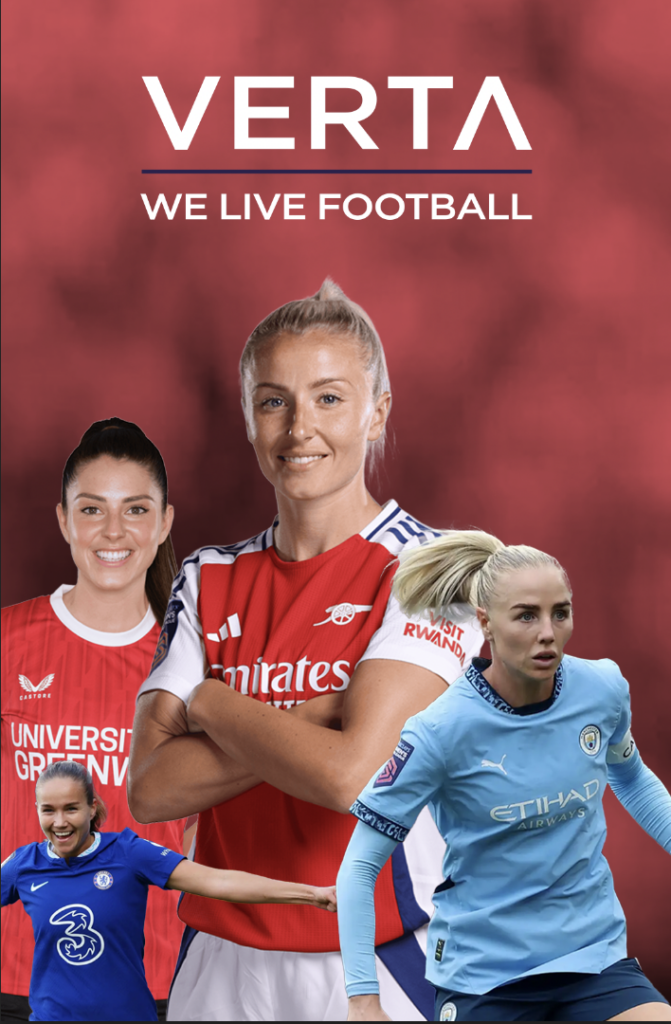It’s a crisp, match day morning, and I find myself squeezed into a table seat with three die-hard football fans — Karen, Sarah, and Kate, scarves tucked neatly into jackets, eyes already sparkling with anticipation. Between sips of coffee and mid-journey snacks, they share stories of what drew them to the women’s game, the friendships forged along the way, and what today’s match means to them.
Meet the fans…
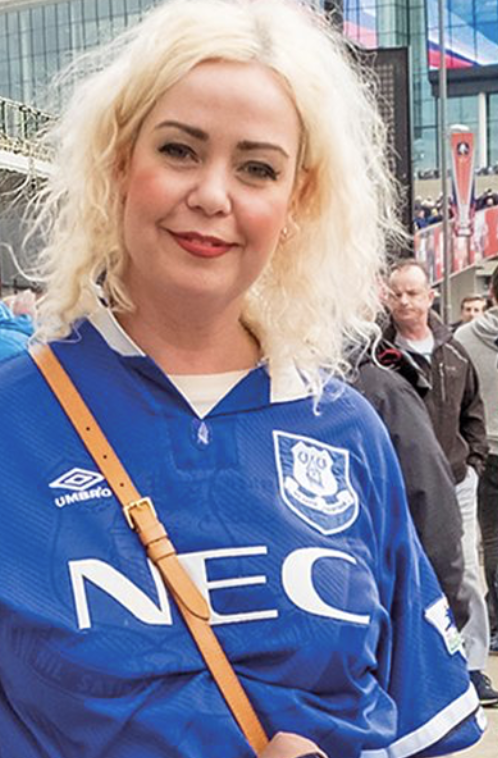
Favourite WSL player:
Taylor Hinds
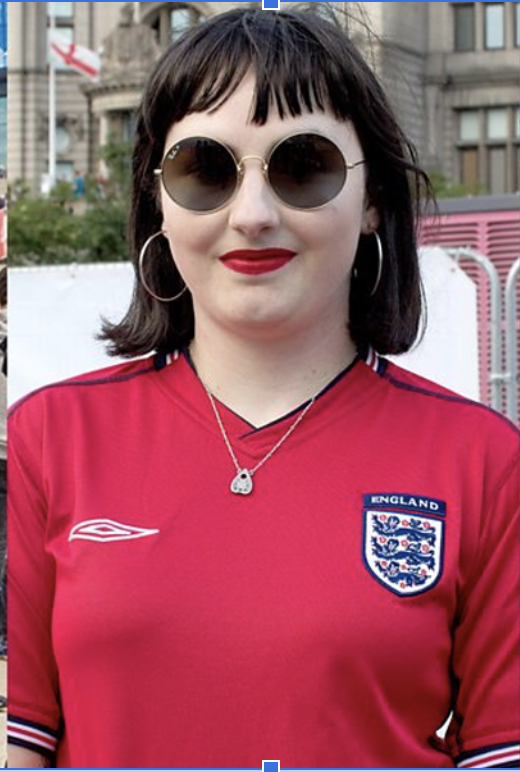
Favourite WSL player:
Millie Bright
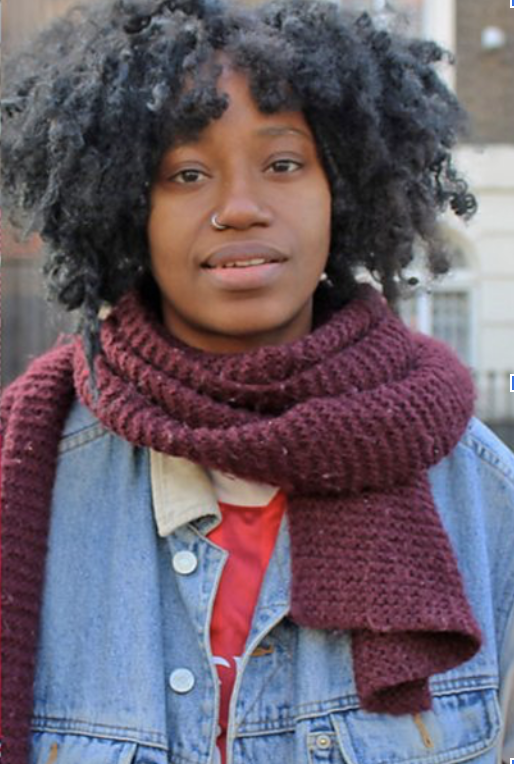
Favourite WSL player:
Ebony Salmon
What first drew you to football, and how has your passion for the game evolved over time?
Karen:
Growing up in Liverpool, football’s always been part of life, but I’ll be honest — I got properly hooked when Everton Women started getting more visibility. Once I went to my first live WSL match in 2020, I was all in. It’s a different energy, more welcoming in a way they mens football, but just as passionate.
Sarah:
The Lionesses! I watched the 2019 World Cup, and I couldn’t believe how much I connected to it. By 2020, I was following them home and away. It’s not just about the football — it’s about the movement, the atmosphere, the pride. My passion’s only grown, especially after the Euros win.
Kate:
For me, it started with Villa — my dad’s a massive Villa fan, and football was always on at home. But it wasn’t until I started following the women’s team that I felt properly seen in the crowd. The last few years have been amazing for women’s football, and I love being part of that growth.
How do you think women’s football fan culture differs from the men’s game?
Karen:
It feels more community-driven and less aggressive. There’s still rivalry, of course — I wouldn’t be an Everton fan without some banter — but people look out for each other more at WSL games.
Sarah:
It’s way more inclusive. You see families, young girls, LGBTQ+ fans — it feels like everyone belongs. I still love watching the men’s game, but women’s football gives you a different sense of togetherness.
Kate:
It’s more accessible — literally and emotionally. You can chat to players after matches, meet other fans easily, and there’s less of the gatekeeping you sometimes get with men’s football.

What traditions or match-day rituals do you and your friends/family follow?
Karen:
We always grab a coffee before heading into Walton Hall Park. I’ve got a scarf I bought at my first game, never miss bringing that. Win or lose, it’s part of the outfit!
Sarah:
The playlist is key — we’ve got our Lionesses away day tunes. And I always try to get a photo with the same flag, it’s been to nearly every game since 2020.
Kate:
It’s all about breakfast first with my mates, then off to the ground. I’ve got a Villa Women shirt signed by the team from last season — that comes with me most games for luck.
What’s the biggest change you’ve seen in the sport in the last few years? (for better or worse)
Karen:
The visibility. You see women’s football on TV, in the papers, proper coverage. Still a long way to go, but it’s unrecognisable from a few years back.
Sarah:
The crowds! Watching the Lionesses sell out Wembley — unreal. But I’d say there’s more pressure now, which isn’t always fair on the players.
Kate:
The professionalism has jumped massively. You can see how much better facilities are, but I hope that as it grows, the community feeling doesn’t get lost.

What impact do you think football has on the local community and culture?
Karen:
It brings people together, simple as that. For the women’s team, especially, it shows young girls they belong in sport. That’s huge.
Sarah:
It gives people a voice — women’s football isn’t just about the game, it’s about equality, representation. It’s cultural, not just sport.
Kate:
There’s pride in it. When Villa do well, the whole city feels lifted. And the women’s team gives kids, especially girls, role models right on their doorstep.
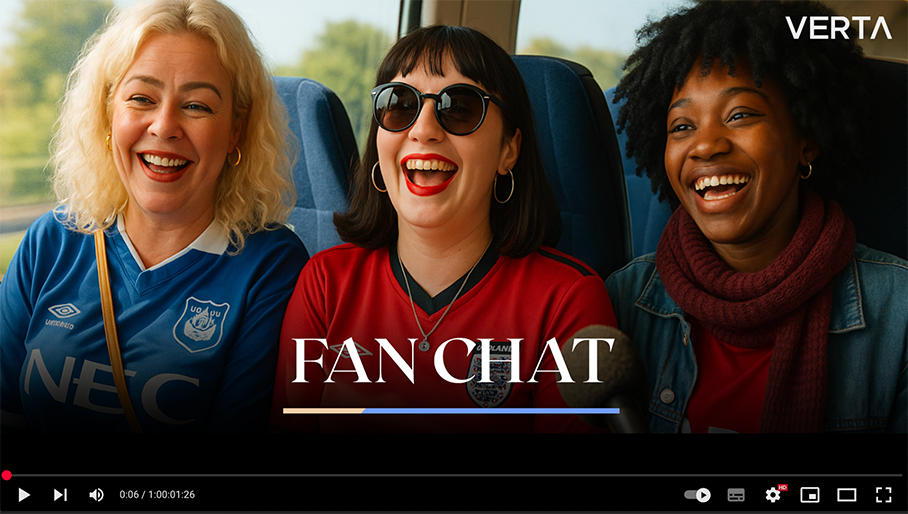
What impact does football have on your personal relationships and friendships?
Karen:
It’s how I connect with friends, with my family — my daughter’s now an Everton fan too, poor thing! But seriously, it gives us shared memories.
Sarah:
Most of my closest mates I met through following the Lionesses. We’ve travelled, celebrated, cried together — it’s proper friendships, built around football.
Kate:
It’s brought me closer to people I’d never have met otherwise. Football weekends are the best — the friendships stay even when the final whistle’s gone.
What role does your local football club play in the wider community?
Karen:
Everton are massive in Liverpool’s community work — from food banks to youth programmes. The women’s team plays a big part in that now, which is brilliant to see.
Sarah:
The Lionesses have inspired so many campaigns — from getting girls into school sport to promoting mental health. They’ve changed how people see women’s football nationally.
Kate:
Villa are doing more than ever to support grassroots, and they run loads of sessions for young girls now. It gives the next generation a way in.

